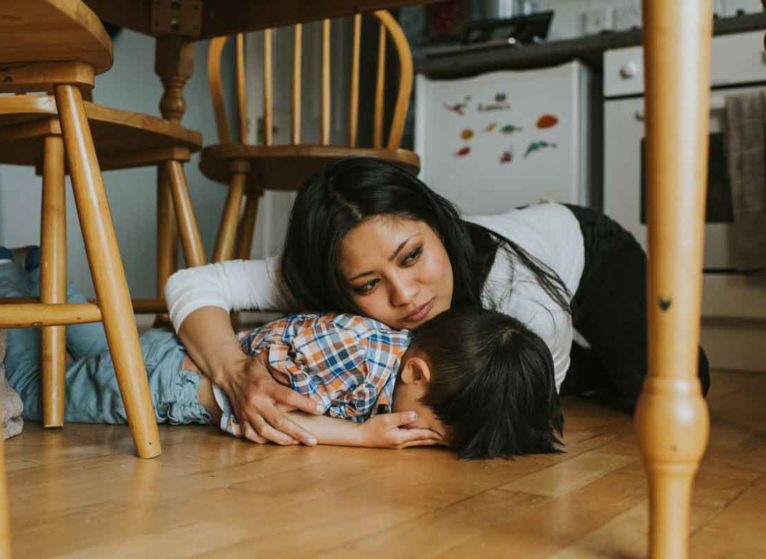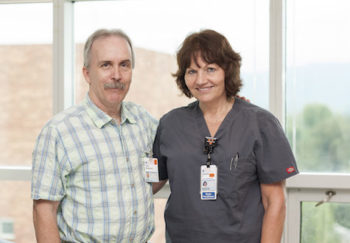Since your car accident a few months ago, you’ve avoided driving. Or you keep having nightmares about when you were mugged — but can’t recall details of the actual mugging. Maybe you constantly feel tense. These frightening thoughts and feelings are interfering with your life. If this sounds like you, you may be having symptoms of post-traumatic stress disorder (PTSD).
“Unfortunately, 60-85% of people experience some sort of trauma in their lifetime — witnessing it, or having it happen to them,” says Jennifer Kim Penberthy, MA, PhD, ABPP, a clinical psychologist and behavioral health expert at UVA Health. An anxiety and depression expert who treats adolescents, children, and adults at UVA Health, Penberthy helps us get a clearer picture of PTSD symptoms and what causes them.
What is PTSD?
After a traumatic event, it takes time for us to process what happened and get back to feeling secure. Most people recover within a few weeks. “The good news is most people that have these horrible experiences work through them on their own,” assures Penberthy.
Struggling to Cope with Trauma?
Our providers can help you heal from trauma and manage PTSD.
But sometimes, we have a hard time coping with what happened.
It’s normal to have distressing or negative thoughts for a time after experiencing or witnessing trauma. But PTSD causes repeated intense thoughts and feelings that affect how you behave. “The symptoms interfere with your functioning,” notes Penberthy. And, the symptoms of PTSD stay with you long after the event is in the past.
The trauma could be from any number of events, like:
- Natural disasters
- Physical or sexual assault
- Serious accident
- Military combat
Penberthy explains, “We define trauma as a direct threat to one's life, like serious physical injury or sexual violence, or witnessing the same physical attacks or immediate threat to life happen to someone else.”
Although experiencing or witnessing a traumatic event is fairly common, not everyone who experiences or witnesses trauma gets PTSD. “Interestingly, only a portion of people go on to develop PTSD. An estimated 6% of males and 10% of females experience PTSD.”
What Do PTSD Symptoms Look Like?
PTSD symptoms fall into these categories:
- Reliving the event (includes flashbacks, nightmares, and triggers that cause you to feel like you are experiencing the event again)
- Avoiding situations (to prevent triggers that cause you to relive the event)
- Hyperarousal (a feeling of constantly being on the lookout for danger)
- Negative thoughts or changes in how you view the world (can affect your relationships, your memory of the event, and how you interact with other people)
Penberthy says, “One of the hallmark signs is increased arousal. It's like this heightened flight or fight reaction. They have an exaggerated startle response — someone slams the door and they jump out of their skin. Or they're paranoid about things, overestimating the danger. Often that translates into trouble sleeping and restlessness.”
She adds that “Additional symptoms are a negative mood. Often people feel very stressed or anxious. Or they have feelings of guilt or anger — even shame. And they usually have depressive symptoms that feel like they don't enjoy things anymore.”
What Causes PTSD Symptoms?
Anyone can get PTSD. Our bodies and brains are wired to respond to the world around us. We’re constantly watching what’s happening in our environment to make sure that we stay safe. But things happen that we can’t control.
“The PTSD is the reaction to the trauma,” reinforces Penberthy. “The risk for developing PTSD is higher in people who've already experienced some trauma or adverse childhood events in their life. We're talking things that are often quite common for people — someone who was close to you died, or you witnessed violence in the home, or you were the victim of violence at school, home, or elsewhere.”
You don’t have to directly experience the trauma to get PTSD. Not everyone with PTSD has lived through an event that threatened them. You may get it from seeing a traumatic event happen to someone else, even a stranger.
Medical PTSD
Having serious health issues can also be traumatizing. And, sometimes, the treatments themselves may lead to PTSD. “I’ve worked with plenty of patients who have PTSD from their medical encounters. It's sort of less well-known. Oftentimes people are not on the lookout for it,” says Penberthy.
She explains, for instance, the risk cancer patients face from treatment. “Chemotherapy can make you violently ill and feel horrible. And then radiation, that's going to be irritating in different ways and making you ill. So, yes, exposure to those can lead to very similar types of PTSD symptoms,” she notes.
Penberthy alerts her patients to the trauma they may experience. “It's less talked about, so the people that I work with, I try to tell them up front that we will want to be the lookout for that. I don't want to prime them to expect it, but I do want them to be aware of it and let them know that we're going to be and keeping an eye on that. Because it does happen.”
“The other thing I would add is we're seeing a rise in PTSD symptoms in medical providers,” she states. “We are seeing a rise in people who are witnessing things like people dying of COVID. And that is causing higher rates of PTSD in that population.”
Do Children Have Different PTSD Symptoms than Adults?
Children may have more extreme reactions to traumatic events than adults. “Unfortunately, children have less autonomy and less control over what happens in their world. Research shows that the trauma happening in childhood seems to have more of a negative impact,” says Penberthy. “It can be much more problematic in a child. And, because of their developmental stage, children often blame themselves. Sometimes this is even encouraged by the people who are traumatizing them.”
And yet, generalizations aren't always helpful. “What's probably more true than anything is that each individual person experiences trauma and PTSD differently,” she concludes.
How Do I Know If I Have PTSD?
It’s not always easy to recognize signs of PTSD in yourself. It’s important to be mindful of your thoughts and behaviors. Ask yourself:
- Are my feelings different than from before the trauma?
- How long have they been different?
- How extreme or out of character are my actions?
If you suspect you might have it, talk about your feelings with someone you trust. “Express to someone you’re close to what you're experiencing and what your concerns are. Ask people that are close to you, ‘How do you think I'm doing?’” advises Penberthy. “They may be able to see things that you can't see in yourself.”
Getting to Better
If you do think you’re having PTSD symptoms, you should get help. “It does not get better on its own," Penberthy says. She advises people to see a provider to either get evaluated for medications or to begin some sort of therapy or counseling.
She specifically says to avoid using alcohol or drugs to help you cope with your trauma and PTSD. “I've seen people do that, and they say, ‘Well, you know, having several drinks sort of relaxes me.’ But that's an avoidant strategy — that's not adaptive in the long run. Using illicit drugs or alcohol is not going to be helpful.”


